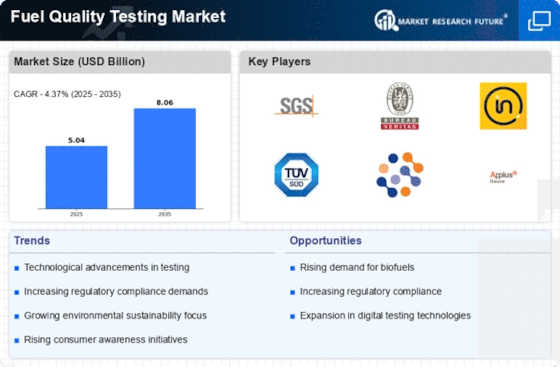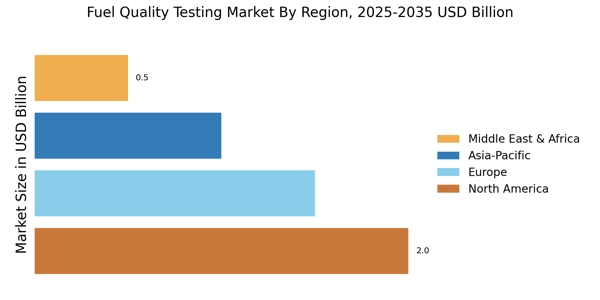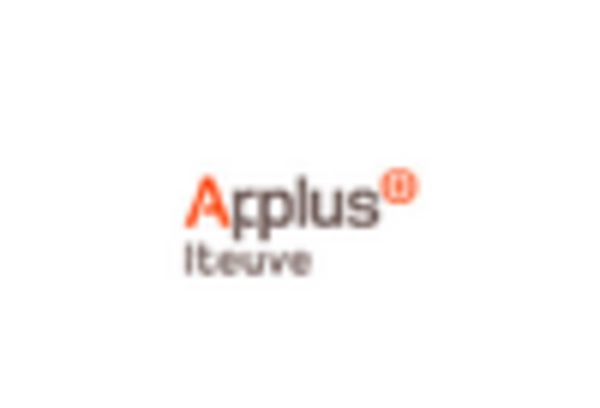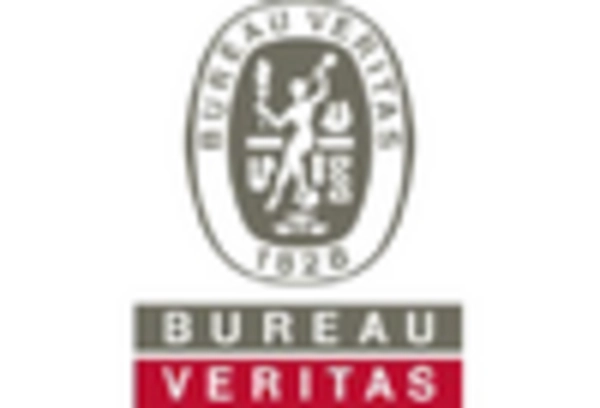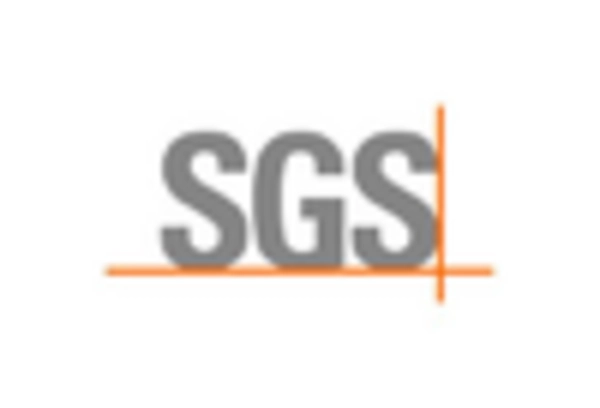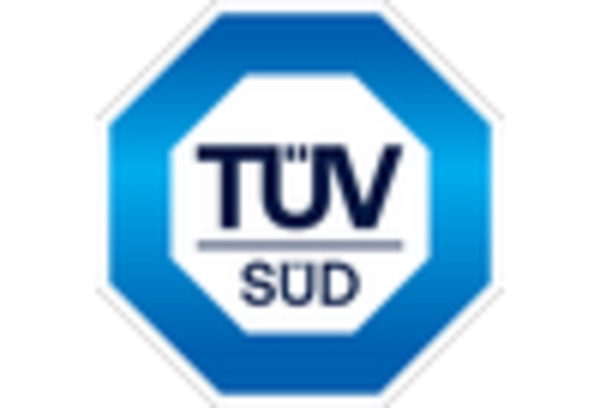Rising Environmental Awareness
The rising awareness of environmental issues is significantly influencing the Fuel Quality Testing Market. As concerns about climate change and pollution intensify, there is a growing emphasis on the use of cleaner fuels. This shift necessitates rigorous testing to ensure that fuels meet environmental standards. The demand for biofuels and alternative energy sources is also on the rise, prompting the need for specialized testing methods to assess their quality. Market data indicates that the biofuel segment is projected to expand at a rate of 7% annually. Consequently, the Fuel Quality Testing Market is likely to benefit from this trend, as stakeholders seek to validate the quality and sustainability of their fuel products.
Increasing Demand for High-Quality Fuels
The growing demand for high-quality fuels is a pivotal driver in the Fuel Quality Testing Market. As consumers become more environmentally conscious, there is a notable shift towards cleaner and more efficient fuel options. This trend is reflected in the rising sales of premium fuels, which are often subjected to rigorous quality testing. According to recent data, the market for premium fuels is expected to grow at a compound annual growth rate of 5% over the next five years. Consequently, fuel suppliers are compelled to ensure that their products meet stringent quality standards, thereby driving the need for comprehensive fuel quality testing services. This heightened focus on fuel quality is likely to bolster the Fuel Quality Testing Market significantly.
Expansion of the Automotive and Aviation Sectors
The expansion of the automotive and aviation sectors is a significant driver for the Fuel Quality Testing Market. As these industries grow, the demand for high-quality fuels that enhance performance and efficiency increases correspondingly. The automotive sector, in particular, is witnessing a shift towards electric and hybrid vehicles, which still require high-quality fuels for optimal performance. Additionally, the aviation industry is focusing on sustainable aviation fuels, which necessitate rigorous testing to ensure compliance with safety and quality standards. Market forecasts suggest that the aviation fuel market will grow by 4% annually, further propelling the need for comprehensive fuel quality testing services. This expansion is likely to create new opportunities within the Fuel Quality Testing Market.
Regulatory Pressures and Compliance Requirements
Regulatory pressures play a crucial role in shaping the Fuel Quality Testing Market. Governments and regulatory bodies worldwide are implementing stringent standards to ensure fuel quality and environmental safety. Compliance with these regulations is not only mandatory but also essential for maintaining market access. For instance, the introduction of new emissions standards has led to an increased emphasis on fuel quality testing to ensure that fuels meet these requirements. As a result, companies are investing in advanced testing methodologies to comply with regulations, which is expected to drive growth in the Fuel Quality Testing Market. The need for regular audits and certifications further underscores the importance of reliable fuel quality testing.
Technological Innovations in Fuel Quality Testing
The Fuel Quality Testing Market is experiencing a surge in technological innovations that enhance testing accuracy and efficiency. Advanced testing methods, such as spectrometry and chromatography, are being integrated into fuel quality assessments. These innovations not only improve the precision of results but also reduce testing time significantly. For instance, the adoption of automated testing systems is projected to increase testing throughput by up to 30%. Furthermore, the integration of artificial intelligence in data analysis is likely to provide deeper insights into fuel composition and quality. As a result, stakeholders in the Fuel Quality Testing Market are increasingly investing in these technologies to stay competitive and meet the rising demand for high-quality fuels.


